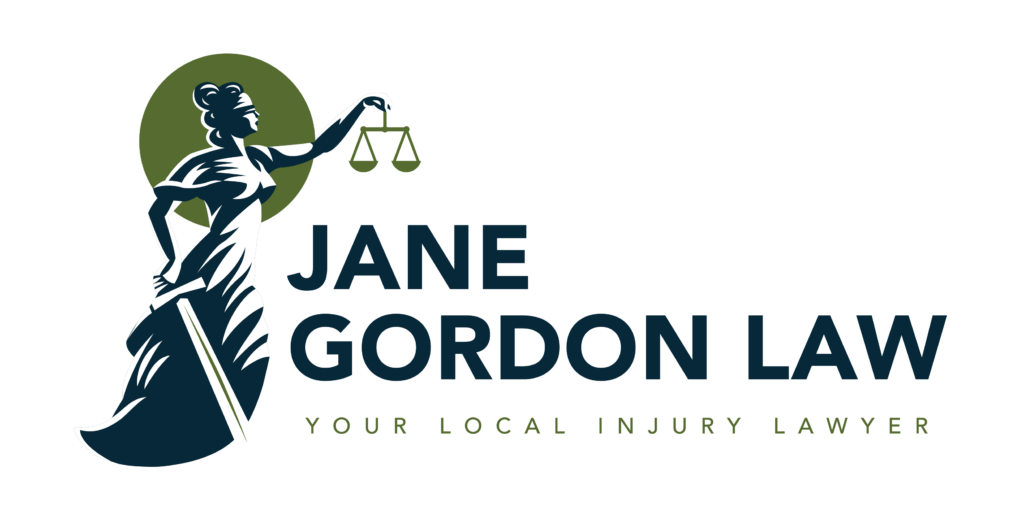
What Damages Can You Recover from a Personal Injury Case?
If you’ve been injured due to someone else’s negligence — whether in a car wreck, a slip and fall, or another type of incident — you may be wondering what kind of compensation you’re actually entitled to. Medical bills can pile up quickly. You might be missing work. And on top of that, there’s the physical and emotional toll that doesn’t show up on receipts.
That’s where damages come in.
In this article, we’ll break down the different types of damages available in a personal injury case, how they’re calculated, and why having the right legal support can make a major difference in the outcome of your case.
What Are Damages in a Personal Injury Case?
“Damages” is the legal term for the compensation you may be entitled to after an injury. The purpose of damages is to restore you, financially and emotionally, as closely as possible to where you were before the injury occurred. While no amount of money can undo what happened, it can help you cover essential costs, ease your stress, and support your path to recovery.
Personal injury damages fall into two main categories, and knowing what each one covers can help you better understand the full value of your case.
Economic Damages
Economic damages (also known as special damages) are tied to actual financial losses and are typically the easiest to quantify. If you have bills, receipts, or documentation to back up an expense related to your injury, it likely falls under economic damages. These may include:
- Medical expenses – Emergency room visits, hospital stays, surgeries, follow-up care, physical therapy, prescription medications, and future medical needs such as additional procedures or ongoing treatment plans.
- Lost wages – If your injury caused you to miss work, you can recover the income you lost during that time — whether it was a few days or several months.
- Loss of earning capacity – If your injury affects your ability to return to your job or limits your career prospects, compensation may be available for the difference between what you used to earn and what you’re now able to earn.
- Property damage – Common in motor vehicle-related claims, this covers the cost to repair or replace a damaged car, bicycle, phone, or any other personal property affected in the incident.
- Out-of-pocket costs – These might include travel expenses for medical appointments, the cost of hiring someone to help around the house, or home modifications to accommodate your injury (such as installing ramps or handrails).
Non-Economic Damages
Non-economic damages (also known as general damages) damages are more subjective but just as important. They relate to the physical and emotional suffering that results from your injury, and they recognize that not all harm is financial.
- Pain and suffering – Pain and suffering refers to the physical pain and discomfort you’ve experienced due to the injury. It can range from temporary aches to chronic pain or permanent impairment.
- Emotional distress – Psychological consequences of an injury, including anxiety, depression, sleep disturbances, PTSD, and fear of returning to certain activities.
- Loss of enjoyment of life: If your injury keeps you from doing things you once loved — playing with your kids, hiking, traveling, or simply being active — this type of damage accounts for that loss.
- Disfigurement or disability: If the injury results in permanent scarring, loss of a limb, or other long-term disability, you may be entitled to additional compensation.
- Loss of consortium: These damages are awarded to the spouse or family members of the injured person for loss of companionship, affection, and support.
What Are Punitive Damages?
In some cases, the court may award punitive damages, which are designed to punish the wrongdoer and deter others from engaging in similar conduct. Unlike compensatory damages (which are intended to help the injured person), punitive damages are about holding the negligent party accountable for especially egregious behavior.
For example, a drunk driver who caused a serious collision may be subject to punitive damages if the court finds their behavior was grossly negligent or willfully dangerous. These damages are not available in every case, but they can significantly increase the total recovery in cases where they apply.
How Are Damages Calculated in a Personal Injury Case?
The process of calculating damages involves more than just adding up bills. While economic damages may be fairly straightforward, non-economic damages take deeper investigation into the injury’s impact on your life.
Courts and insurance companies typically consider:
- The severity and duration of the injury
- The long-term impact on your health, lifestyle, and ability to work
- The credibility and detail of your medical records
- Expert testimony from doctors, therapists, or vocational specialists
- Your own account of the pain and life changes you’ve experienced
Because non-economic damages can be subjective, insurance companies may undervalue them — especially in cases where the injured person isn’t represented by a personal injury attorney.
Are There Limits on Damages in Idaho?
Some states place caps on certain types of damages. For example, in Idaho, the state sets a non-economic damages cap on the amount you can recover for non-economic damages like pain and suffering. However, that cap is adjusted each year based on inflation, and certain exceptions may apply.
Understanding how these limits affect your case is crucial, especially if you’re facing a serious injury with long-term consequences. A knowledgeable personal injury attorney can walk you through what is and isn’t capped under Idaho law and help you develop a strategy to recover the maximum compensation allowed.
Why It Helps to Have a Personal Injury Attorney on Your Side

Navigating a personal injury case isn’t just about filing paperwork — it’s about understanding your rights, gathering the right evidence, and knowing how to negotiate with insurance companies that are trained to minimize payouts.
Here’s how an experienced personal injury attorney can help:
Personal Injury Attorneys Know the True Value of Your Case
Many people don’t realize just how much compensation they’re entitled to. Insurance companies may offer a quick settlement that sounds appealing at first glance — but it often falls far short of covering long-term medical needs, lost income, and emotional suffering. A personal injury attorney will evaluate your case from every angle to ensure nothing gets left off the table.
Personal Injury Attorneys Handle the Legal Work While You Focus on Recovery
When you’re injured, the last thing you need is the added stress of dealing with forms, deadlines, insurance adjusters, and evidence collection. A personal injury attorney takes that burden off your plate, managing the legal process from start to finish so you can focus on healing. Beyond just paperwork, they know how to gather and present the right evidence — medical records, expert testimony, witness statements, and more — to build a strong, credible case.
Personal Injury Attorneys Are Skilled Negotiators
Insurance companies are in the business of protecting their bottom line. Personal injury attorneys are trained to push back, negotiate aggressively, and fight for a fair settlement. If a settlement can’t be reached, they’re also prepared to take your case to court. Since insurance companies know that, they are more likely to play ball with a personal injury attorney for a fair settlement to avoid a court case. Having an attorney also helps you avoid common negotiation mistakes — like accepting a low offer too quickly or saying something that could be used against you.
Get the Compensation You Deserve
Personal injury cases are about more than just financial recovery — they’re about protecting your future, honoring your experience, and holding the responsible party accountable. Whether you’re facing medical bills, lost wages, or emotional trauma, understanding the full range of damages available is the first step toward getting the support you need.
Every case is unique. If you’ve been injured, don’t leave your compensation to chance. Talk to a qualified personal injury attorney who can evaluate your situation, explain your rights, and help you pursue the full and fair compensation you deserve.
At Jane Gordon Law, I’m here to help you make sense of the legal process and fight for what you’re owed. I will take the time to understand what you’ve been through and build a case that reflects the full impact of your injury — because you shouldn’t have to go through this alone. If you’re ready to take the next step, reach out today for a free case review.
